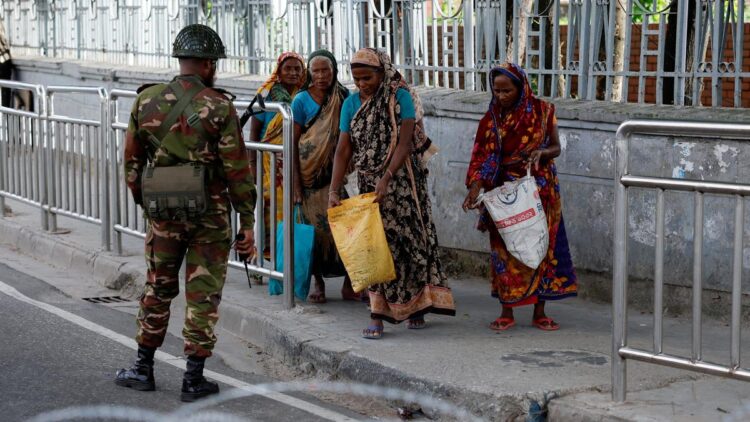In a decisive move on Sunday, Bangladesh’s Supreme Court significantly reduced the contentious quotas for government jobs, a system that had incited violent protests across the nation. The previous quota system allocated approximately 30% of desirable civil service positions to relatives of veterans from Bangladesh’s 1971 war of independence against Pakistan. Many of the country’s current political elite are connected to this veteran generation.
The quota system had become a flashpoint for discontent, especially among students and young people, as Bangladesh grapples with high unemployment rates. Civil service positions are highly coveted for their job security and better pay, making the quotas a source of frustration for many.
The unrest has been severe, with reports of dozens killed and hundreds injured. Demonstrators have taken to the streets and university campuses in Dhaka and other cities, demanding change.
In 2018, similar protests led to the abolition of the quota system, but it was reinstated in June when the High Court deemed its removal unconstitutional. The Supreme Court suspended the quotas for one month starting July 10 while reviewing the case. On Sunday, Shah Monjurul Hoque, a lawyer representing the students, announced to local media that the Supreme Court had delivered a final resolution.
“The court ruled for a 93% quota for the general public, 5% for freedom fighters and their relatives, 1% for the ethnic minority community, and 1% for the third gender and physically disabled individuals,” Hoque stated.
In response to the ongoing unrest, the government extended a curfew in Dhaka initially imposed on Friday and deployed soldiers to patrol the streets. The curfew, designed to quell the violence, was briefly lifted for residents to gather supplies but is set to continue indefinitely, Reuters reported.
Communication has been severely restricted, with CNN reporting difficulties in reaching the prime minister’s office, home affairs ministry, and police due to a government-imposed blackout affecting mobile and internet services. According to internet monitoring site NetBlocks, internet activity has remained at about 10% of normal levels for over 48 hours since the blackout began on Thursday.
The US State Department has raised the travel advisory for Bangladesh, advising against travel due to “civil unrest, crime, and terrorism.”

















Comments